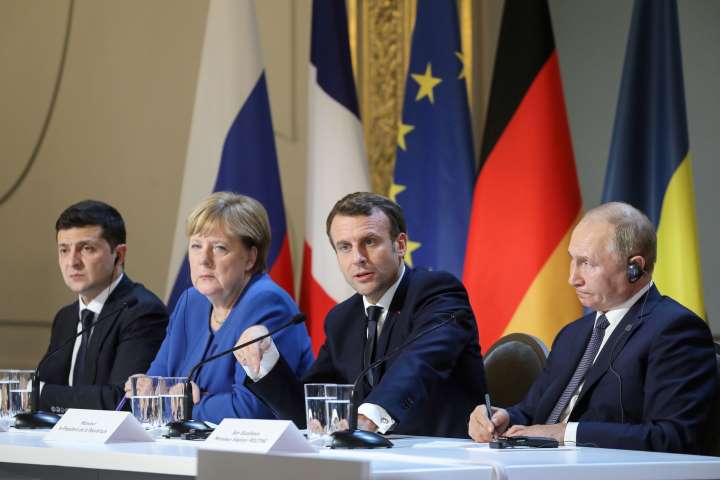
IPPNW 2023 World Congress Unveils Nexus
Between Disarmament, Climate Crisis, Health
International Physicians for the Prevention of Nuclear War
(May 25, 20230 — The IPPNW World Congress held in Mombasa, Kenya last month provided a crucial platform for global experts, activists, and students to address the critical issues of nuclear disarmament, climate crisis, and health. The delegation from the United States included Tova Fuller, MD, PhD and David Drake, DO, MTS from the PSR Board of Directors, members Bob Gould, MD, Ira Helfand, MD, Andy Kanter MD, PSR staffers Isabella Javidan and Jasmine Owens and Oregon PSR Executive Director Kamil Khan. Bob Dodge, MD and Ellen Ferranti, MD tuned into the Congress virtually. PSR’s own, Jasmine Owens and Isabella Javidan, made significant contributions through their workshops at the Congress.
Javidan’s workshop focused on analyzing traditional media narratives and challenging prevailing biases associated with nuclear issues, aiming to foster a more nuanced understanding of nuclear weapons’ implications. Owens led a workshop on building bridges between nuclear-armed and non-nuclear-armed states, emphasizing the importance of dialogue and understanding to promote collaboration and abolition.
The congress explored key themes, shedding light on the US military’s status as the largest global producer of carbon emissions, emphasizing the need for comprehensive actions and policy changes to address the climate crisis. Discussions also highlighted the increased likelihood of conflicts resulting from the climate crisis, stemming from resource scarcity and environmental consequences.
Additionally, the impact of uranium mining on the Global South emerged as a crucial concern, with a focus on the environmental hazards disproportionately affecting communities in those regions and the urgent need for environmentally just practices. The Congress concluded with the Mombasa Declaration [See below — EAW], which underscores the urgent need to avoid nuclear catastrophe or environmental collapse, and recommits IPPNW to its responsibility to prevent what it cannot cure.
Overall, the IPPNW World Congress served as a platform to delve into the intricate connections between humanity’s existential threats. By addressing these issues, participants and experts aimed to foster collaboration, promote comprehensive approaches, and raise awareness about the urgent need for a more sustainable and peaceful future.

The Mombasa Appeal for Peace,
Not Nuclear Annihilation
Physicians for Social Responsibility

PSR joins doctors around the world
in calling for ceasefire in Ukraine,
avoiding nuclear catastrophe
MOMBASA (April 30, 2023) — At the end of April, International Physicians for the Prevention of Nuclear War (IPPNW) held its 23rd World Congress in Mombasa, Kenya. PSR is the United States affiliate of IPPNW, a network of national medical organizations in 55 nations. During this Congress, representatives from all regions of IPPNW gathered to discuss the gravest dangers the world faces right now, climate change and nuclear weapons, and their impacts on global public health.
Out of this Congress emerged the Mombasa Appeal, which calls for an immediate ceasefire in Ukraine amidst the growing threat of nuclear escalation. The Appeal lays out the risks of nuclear catastrophe if the war in Ukraine wages on, and urges all states to join the Treaty on the Prohibition of Nuclear Weapons, among other sensible and urgent demands.
“This could be the last chance for us humans to close Pandora’s box and opt for common survival instead of mutual annihilation.”
https://www.nadir.org/nadir/initiativ/agp/campanas/stopwar/august2006/august11/0811mombasa.jpeg
The Mombasa Appeal
The following statement was issued by IPPNW’s International Council and Board of Directors at the conclusion of the 23rd IPPNW World Congress in Mombasa, Kenya. PSR is the United States affiliate of IPPNW. PSR endorses the Mombasa Appeal and the PSR delegation to the World Congress fully supported its adoption
At our 23rd World Congress in Mombasa in April 2023, we, the International Physicians for the Prevention of Nuclear War, discussed the risks and impending consequences of the current, crisis situation on our planet. The war in Ukraine bears enormous costs for people mainly but not only in Ukraine and causes unspeakable suffering.
So many civilians and soldiers from both sides have lost their lives, health and livelihoods. In addition, global food supplies have already suffered and prices for essential goods are rising. According to current figures, hunger in Africa threatens to increase by 117% if the war is not stopped immediately.
Crucially there is a real and growing risk that the world will enter a nuclear war in the near future. With every day of the ongoing war in Ukraine, this risk increases.
At the same time, the conflict over Taiwan threatens to escalate further, including the danger of nuclear war involving China and the USA.
Nuclear war will almost certainly not remain limited. Military planning games regularly lead to total escalation and mutual annihilation once nuclear weapons are used.
The principle of nuclear deterrence, essentially unchanged since the Cold War, with the credible threat of mutual total annihilation due to its failure, threatens human existence.
A single bomb can completely destroy the urban core of a major city, with hundreds of thousands dead, injured and contaminated. The use of many nuclear bombs, as is likely in a nuclear war, would not only lead to many millions of dead and injured, but destroy key infrastructure, transport routes, the food supply and the health system. Recovery would take decades. We doctors must make it clear: In the event of nuclear war, there will be no medical aid. We will not be able to help you – or ourselves!
While the use of even 100 nuclear weapons would have severe impacts on global food production and cause up to 2 billion victims of hunger, the humanitarian consequences and risks of an all-out nuclear war would be devastating. Both Russia and the US possess over 3,700 deployable nuclear weapons. The use of even a part of them would lead to climate change with a sustained drop in temperature of over 10°C on average. Life would then no longer be possible in large parts of the planet, the nuclear winter.
In a nuclear war there are no winners, only losers. Then the millions of immediate victims will be the lucky ones, the living will envy the dead.

Comparable at most to the situation in 1962 and the second peak of the Cold War in the 1980s, mankind today is at a crossroads. It will either find its way back to its noble skills of reconciliation, cooperation and empathy — or it will follow its darkest inclinations of greed, vindictiveness and all-consuming destructiveness.
As doctors, we therefore address those who bear responsibility for the survival of us all on behalf of all humanity: the adversaries at war, President Putin and President Zelensky; the governments of the nuclear-armed states, especially Presidents Biden and Xi Jinping; and the governments of the NATO countries and all those involved in the conflict in any way.
We demand:
- An immediate ceasefire;
- The immediate withdrawal of all invading forces;
- All sides refrain from all measures that lead to further escalation of the war;
- Renunciation of the use of nuclear weapons by all nuclear-armed states;
- Entry into earnest negotiations on a peaceful solution to the conflict in Ukraine.
There are numerous initiatives and proposals that could serve as a basis for such negotiations.
Due to the well-founded concern that the conflict over Taiwan will also turn into a war threatening humanity, our 3rd, 4th and 5th demands apply analogously here as well.
Furthermore, we demand that the nuclear powers enter into negotiations in good faith on effective measures to end the nuclear arms race in the near future and to achieve complete nuclear disarmament, as many have pledged to do in Article 6 of the Treaty on the Non- Proliferation of Nuclear Weapons.
In order to effectively counter the danger of nuclear annihilation, we urge that all states — especially those that have hitherto relied on the illusory security provided by nuclear weapons — join the Treaty on the Prohibition of Nuclear Weapons.
To all people with creative minds and the ability to moderate, we appeal: Let us end the deadly spiral of escalation and re-enter peaceful coexistence.
This could be the last chance for us humans to close Pandora’s box and opt for common survival instead of mutual annihilation.
And once we have overcome the current crisis, we must turn back to the other existential dangers facing humanity: The climate crisis, environmental degradation and the continuing divide between rich and poor. We will need all human skills and virtues to ensure long-term survival on our wonderful planet.
Originally posted on IPPNW’s Peace and Health Blog. IPPNW was the recipient of the 1985 Nobel Peace Prize. PSR is the United States affiliate of IPPNW.